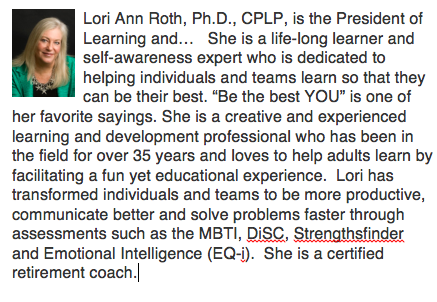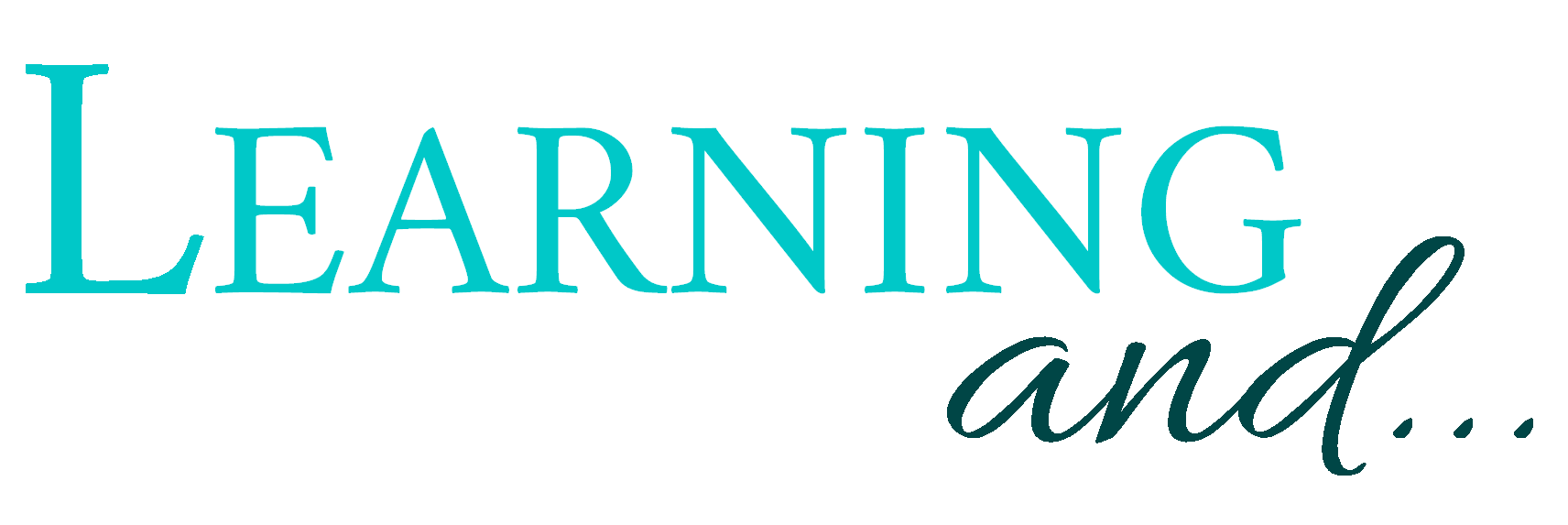As most of you know I am a goal setter. I set goals in December/January for the entire year. Last year I set too many goals, but this year I have only 4. I help employees learn about SMART goals and daily tasks. I thought I had adequate knowledge and skills in this part of my life but, my son recently taught me about “yet” goals or the Yet mindset.
“Teaching” runs in my family. My mom taught grades 1 – 5 for her working life. I love to help adults learn and have 35 years of education and experience in the adult learning profession. This is my life’s passion. My son, Mick, will graduate from the University of Miami with a degree in Music Education and a teaching certificate. He will soon be teaching music/band to high school (or middle school) students this next academic year (September).
When Mick came home on Winter break we had a discussion about teaching and what are good practices for adults and for middle schoolers. He and I have a lot in common about our interests to help people learn. I love to learn what new ideas he gets from his professors so I can possibly apply them to my audience. They say that pedagogy, the art and science of teaching children is based on different theories than andragogy, the art and science of helping adults learn. But, I have realized that at times both sets of theories may work on high schoolers or adults.
For example, when Mick was 4-years old he got a bike for his birthday, it came with training wheels. He wanted them to come off when he was 5-years old. He tried to ride the bike with no training wheels and he failed time after time – that day. He kept saying, “I can’t ride a bike!” Young Mick decided he will not ride this bike. When he turned 10-years old all of his buddies were riding bikes and he thought he should be able to ride. He got a “big boy bike” and it had no training wheels. I remember taking Mick to the local park and assisted him in learning how to ride that bike. I was so afraid when he went down the hill on a back road filled with rocks. But, by the end of the hour he was riding like the other kids. He could ride a bike.
A YET mindset is used when a person is in the situation of 5-year old Mick. He thinks he cannot ride a bike. He says, “I can’t do this at all” or “I will never be good at this!” Or “I can’t do it.” A good teacher would use the YET mindset to say, “You can’t do it…YET.” This is a true statement and helps the person realize that they need to practice and try again. It does take time to learn how to do anything. Young Mick was used to things coming easy to him. School was easy, music was easy, talking to adults was easy. He liked doing what he was best at accomplishing. He used his talents and his strengths. However, when he came across a challenge such as riding a bike, he gave up because it was difficult.
Instead of pushing him, I waited until he was ready. Of course, I never got the How to Raise a Perfect Child Handbook. I wish I had known about the YET mindset at that time. Mick also told me to use this mindset in these ways:
- Be thankful for something you have not finished YET!
- If you have not done it —-Yet
- I you don’t know how to do it —Yet
As Mick works with his students, he notices that at times they are negative and say, “I can’t play that song. It is too difficult.” He replies with, “You can’t play that song…YET.” Mick then tells them that he too needed years to practice to get as good as he is now. He reminds them that playing the saxophone will be possible with effort and time.
As any good researcher and educator, I looked up “yet” goals on google. I found nothing except SMART goals. Sure, there were articles with yet in the title but nothing on Yet goals. I had to go back to the source – Mick. He told me that this was a theory he learned in one of his Music Education classes or a Teaching ESOL class. The term was not “yet” as he described it to me but, the Growth Mindset vs the Fixed (or static) Mindset. This idea of the Growth vs Fixed mindset is based upon the research of Carol Dweck, Ph.D.at Stanford University. This theory describes the beliefs people have about learning, intelligence, and motivation. For example, when students are positive and believe they can do the task, they understand that they need to put in the time and effort. This leads to higher achievement in school and in life. In her new updated book,Mindset: the New Psychology of Success; how we can learn to fulfill our potential (2007),she describes the two different mindsets and how educators (teachers) can use this theory to change the mindsets of students from static or fixed to a growth mindset. I have not heard of her mindset research before Mick told me recently. It reminds me of a positive vs a negative mindset but more specific to learning.

I use a positive mindset with myself and my coaching clients. I keep our discussions positive, and have used appreciative intelligence/Inquiry methodsfor solving issues. Usually, this method is used for change management for organizations, but I’ve used it for problem solving at an individual level. I believe these positive mindset theories help in keeping adults motivated and determined to learn.
How do you use positive mindset in your business? Please let me know by commenting.
#mindset #motivation #self-development


WWW.LARG.com


